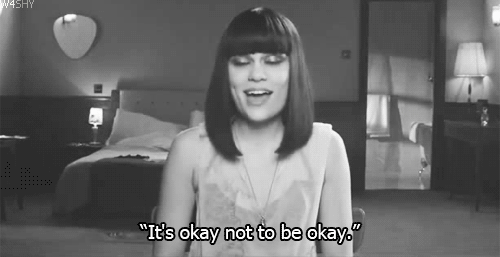A CEO’s awe-inspiring email response to his employee’s request to take a day off to focus on her mental health has gone viral for ALL the right reasons.
Madalyn Parker, a software developer from Michigan, suffers from chronic anxiety, depression and post-traumatic stress disorder.
After a string of insomnia-riddled nights and consuming dark thoughts, the 26-year-old knew that the best thing for her to do was to take some time to herself.
She composed an email to her colleagues, letting them know that she would be out of office for two work days with the sole purpose to focus on her mental well-being.
Hey team,
I’m taking today and tomorrow to focus on my mental health. Hopefully, I’ll be back next week refreshed and back to 100%.
Thanks
Madalyn,.
The company’s chief executive officer, Ben Congleton, was quick to respond.
Hey Madalyn,
I just wanted to personally thank you for sending emails like this.
Every time you do, I use it as a reminder of the importance of using sick days for mental health – I can’t believe this is not a standard practice at all organisations.
You are an example to us all, and help cut through the stigma so we can all bring our whole selves to work.
Overwhelmed by her CEO’s support, Madalyn posted the exchange on Twitter where it’s since received more than 50,000 positive reactions from people all around the world, many of whom are using Madalyn’s experience as fuel to fire a much larger debate.
“Even in the safest environment it is still uncommon to be direct with your co-workers about mental health issues,” the hero CEO writes in a blog post entitled ‘It’s 2017 and Mental Health is still an issue in the workplace’.
Explaining his response, Congleton continues: “I wanted to call this out and express gratitude for Madalyn’s bravery in helping us normalise mental health as a normal health issue.
“As executives, we lead organisations made up of people who’ve come together to make an impact. Our job is to empower and motivate our teams to maximise the impact of our organisation for our customers, our employees, our shareholders, and the world.”

As the world now calls upon employers to step up and encourage their workers to take a day off for the sake of their mental well-being, we chatted to Clinical Psychologist, Jo Lamble, to find out just how a mental health day can help someone through a vulnerable time.
Why are mental health days so important?
When we are feeling overwhelmed, or down, or very stressed, we are not doing ourselves or our employers any favours by turning up to work. We won’t be working efficiently and we could be adversely affecting those around us.
For those of us dealing with clinical depression, grief or anxiety, often all we need is a day to ourselves – a day to recharge and catch our breath.
A mental health day shouldn’t be spent running around doing errands. It should be spent relaxing and building up our strength so that we are ready to return to work and do our jobs well.
How can you approach your boss about taking a day for your mental health?
It’s a good idea to point out how taking a day will be of benefit to the company in the ways I outlined above.
Try to explain that your need for a mental health day has been brought on by factors that make it hard to perform your role in your usual fashion.
What steps can be taken to remove the stigma surrounding mental health in the workplace?
I had this very discussion with someone today. He’s quite senior in his workplace and has been put on anti-depressants and was referred to me for anxiety and depression.
He is so fearful that his workplace will find out and that people will think less of him. I encouraged him to talk to a trusted colleague about how he is addressing some issues at the moment and was really benefitting from getting some help.
The more people talk about their struggles with mental health issues AND outline what they are doing about them, the more the stigma will decrease.
Should employers be doing more to target mental health issues within work hours?
The main thing workplaces can do is to support workers who ask for time off and to follow up with them.
They need to reassure the worker that they are valued even more for speaking up and asking for support.
What should you do if your company doesn’t support taking a mental health day?
It might be time to assess whether this company is where you should be.
More of this, please.


